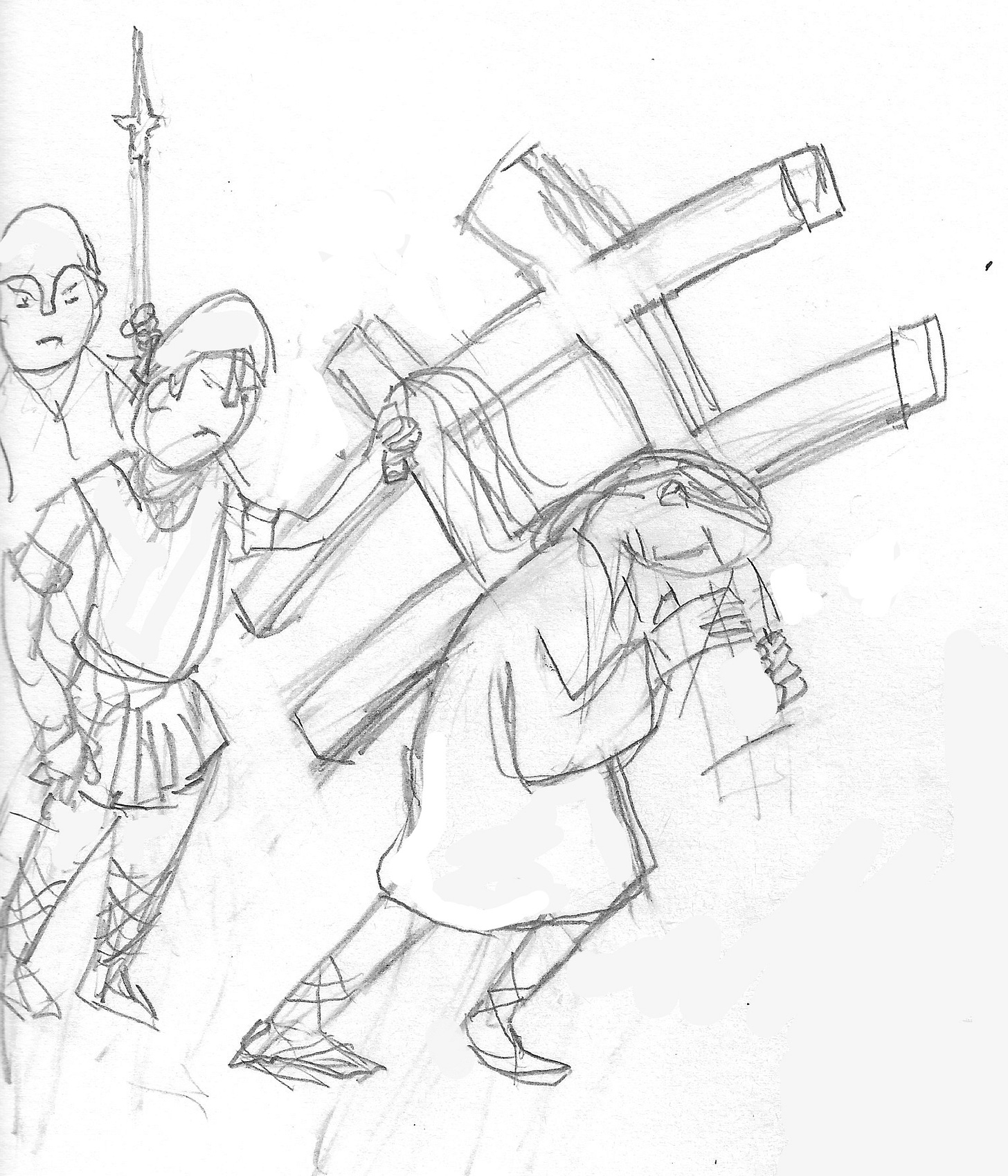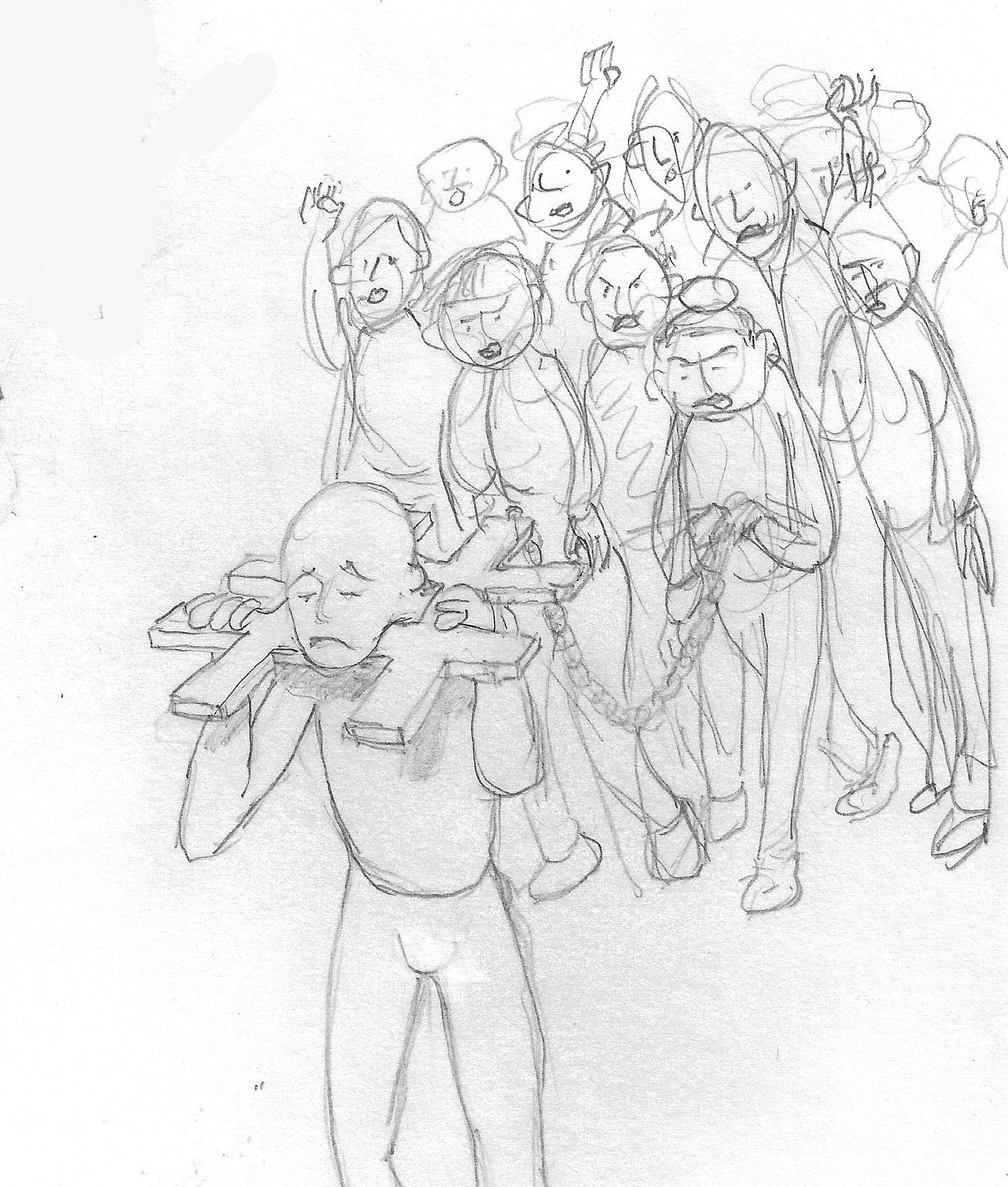It feels like maybe this cancel culture thing has run its course. It’s not like I’m that tapped into online culture but it seems like we’re hearing less about call outs destroying people. Does that mean it’s happening less or when it is happening, it’s less consequential, or what?
A guest post written by Ali Power, titled On Changing One’s Mind, published on the excellent substack, Restoration, encouraged me to approach the topic, which, to be honest, I have been afraid to write or cartoon about. Another cross-post there, by Santiago Pliego, suggests there’s been a “vibe shift” away from “calling out,” or using online social platforms to cancel people. We can only hope, and maybe feel a little safer to speak our minds.
Putting an end to a mass phenomenon like cancel culture is tricky because, even if lynching someone (virtually) based on unproven allegations is patently wrong (and make no mistake, it IS wrong: no presumption of innocence, no due process), critical theory has taught us to distrust norms, including even the rule of law. According to the recently-university-educated, the rich and powerful on down to those who hold positions within what-used-to-be-respected institutions are not to be trusted, which justifies taking matters into their own hands.
Canadian writer Margaret Atwood got caught up in one such bullying frenzy not too long ago, which prompted her to do some terrific research into the French Revolution, (which she cheekily calls the French Revvie) on her substack In the Writing Burrow. Between 1789 and 1799, there was so much arbitrary killing of this faction and that faction that Paris reeked of blood. (We can’t help but note the irony here of the 2024 Paris Olympics, which opened last Friday with a parade that included the ghastly beheaded Marie Antoinette and a float of frolicking diversity show offs.)
Wrong though it may be, cancel culture isn’t about to cancel itself. To start down that road, it would have to turn the tools of critical theory on itself and it’s too self righteous for that. And, quite possibly, there is no disarming scholarship once it has been weaponized. (Many hands are wringing over what to do about the universities, whether and how they can be redeemed.)
A few years. ago, the New York Times published an embarrassingly oblique (dare we say half-hearted) “critique” of cancel culture. Maybe the writer, Ligaya Mishan, feared attracting the eye of Sauron. You could not blame him/her/them. So lame were the excuses: it’s been done before, it’s just human nature, it’s not really powerful because look, Donald Trump and Elon Musk have not been brought to their knees, and besides, we couldn’t do anything about it even if we wanted to…. capitalism is driving it.
Yes public shaming, shunning, ostracizing are historically known social behaviors. The Spanish artist Francisco Goya gives us many examples from his period, including the fantastic painting reproduced in the Mishan article. (The NYT can be relied on for great illustrations, at least the historical ones in that article are; the modern ones are odd, equivocal at best, the result of yet another diversity quota?)

What irks me most about cancel culture is the cowardice of the digital swarm with its choice of victims who cannot defend themselves, the insidiousness creepiness of the tools they use, the anonymity they hide behind, and the hypocrisy… How could those claiming such superior ethics be so blind and stoop so low?
One last note. The title of this post refers to the chilling play by Edward Albee, Who’s Afraid of Virginia Woolf? made most famous by the film of the same name directed by Mike Nichols and starring Elizabeth Taylor.

A la prochaine, mes amis.










A very minor correction, in the context of appreciating your essay. The essay is by me, Nina Power, for Aayan Hirsi Ali's project Restoration. I love the sketches—the root word for "cancel" is in Latin also the root word for "incarcerate", to imprison. Also we get the idea of lattice/crossbars. The hashtag torture implement/imprisoning device is therefore perfect, as I know you know!